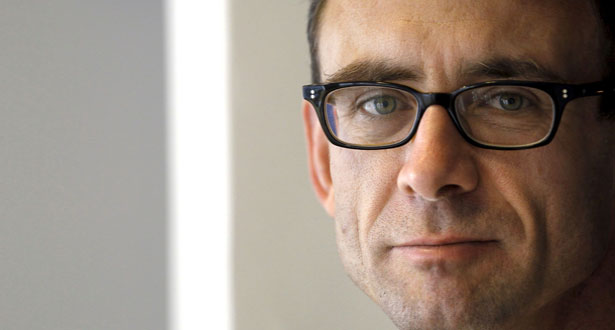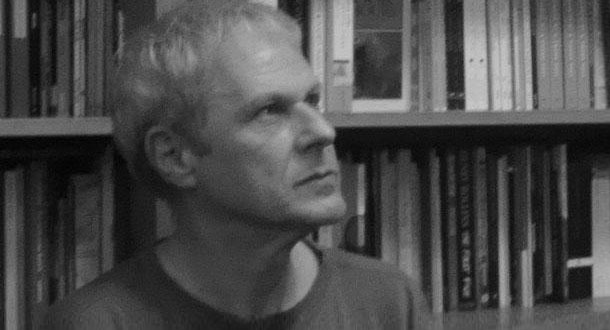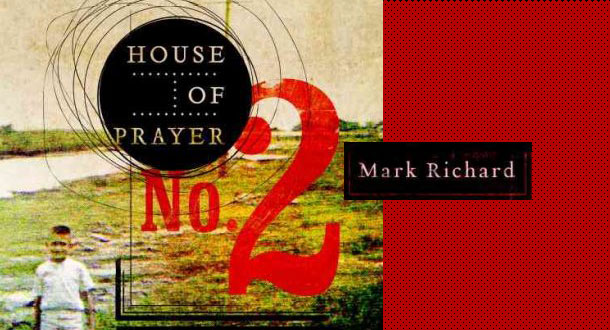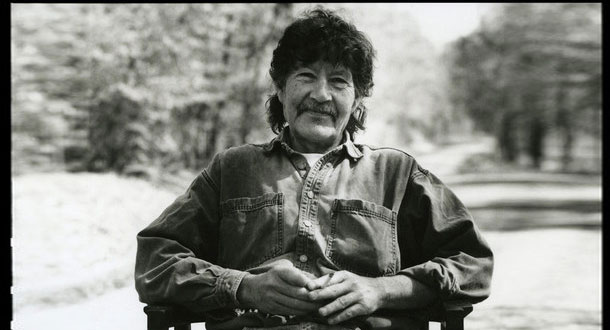A few years back, at AWP in Minneapolis, I heard MP Johnson read "Berzerkoids are Here" from the collection Berzerkoids. It was funny and disturbing and loud, helped along by the Greek chorus of Bizarro writers shouting lines from the story. It was my favorite kind of live reading: One you remember.
Flash forward to a few months ago, and Johnson—author of Drag Queen Dino Fighters, which we recently reviewed—announced on Facebook she was trans, and her name was Emma. In the ensuing weeks she wrote some very thoughtful posts about the process.
I was struck by one in particular, a timeline of struggle, that packed so much painful history into such a small space that I found myself so relieved by the conclusion. I didn't meet Emma at the reading and I don't know anything about her other than being a Facebook friend but it was really, deeply affecting.
She's now put that post, and more, into a zine called Trans Mess (which you can get at this link). It runs the gamut: Heartbreaking, funny, painful, and hopeful. And it's very much worth reading.
You've written some really incisive and thoughtful posts on your blog and Facebook about your transition—why did you want to collect them in a zine?
I got my start doing zines. Growing up in the punk rock scene, it was just part of the deal. You participate. As a writer, my participation naturally came in the form of doing a zine. I published a zine called Freak Tension that ran for 15 years and 15 issues beginning in the late ‘90s. In recent years, my love for zines has been rekindled, in no small part because of all the rad queer and trans zines popping up. It seemed very natural to me to go back to my roots.
How did it feel—completing it and assembling it and mailing it out? Did it feel like a turning point, or cathartic? Or just a small step on a big journey?
I’ve never had a project come out of me as easily as Trans Mess did. The real catharsis came in coming out to my family and friends. It came in going to Planned Parenthood and saying, “I’m a trans woman, I need medicine to be whole.” In the wake of that, this writing just seeped out of me. I recognize that a lot of the stuff discussed in the zine is sad, but I tried to keep it upbeat and playful too, and I think the cover reflects that. I personally think the stuff about the werewolf claws and whatnot is as hilarious as it is heartbreaking when I look back on it. And the pieces at the end about dress shopping and beauty I hope come across as joyous, because that’s really me at the moment. If anything, the creation of this zine just solidified where I am mentally and emotionally right now: I’ve put my worst struggles behind me, and I’m ready to face all future struggles with a smile on my face and a big, open heart. That’s the charge I felt as I was sitting on the couch folding and stapling. There was crying, but it was totally happy crying.
At one point you say you're not brave to be coming out, you're just too worn out to be afraid anymore. Which is interesting because I've been reading a lot of non-fiction lately and it's been making me wonder if non-fiction writers are braver than fiction writers. A fiction writer can throw up her hands and say "Nope that's not me that's my character," whereas a non-fiction writer is saying "This is me, deal with it." What do you make of that?
Oh, I don’t know. Most nonfiction is like cookbooks and junk, so the bravery level probably depends on the style of cooking. But as far as biography and personal essay type stuff, or like perzines like Trans Mess, it’s still whatever reality the writer wants to present. Details are omitted while others are emphasized to elicit a certain response. Like, I’m not going to include the part where I said a horrible thing to my grandpa, one of the most important people in my life, before running away and taking the city bus downtown to shoplift makeup from Woolworths and break into an office building and put it on in the bathroom. It would make me look like a piece of shit. So I talk about the cutesy stuff like trying to hypnotize myself into growing boobs. I could write about all the horrible things I have done and all the people I have hurt while trying to figure my shit out, but that would be unbearable and even thinking about it right now is almost shutting me down. And if I did that, the result would be a thing that made people hate me, rather than making them understand where I’m coming from. So just because something is branded nonfiction doesn’t mean it’s a complete and honest picture.
With that in mind, I have a book coming out in the fall from Lazy Fascist called Nails that is essentially a weekend in my life during my crossdressing phase. It’s gross and embarrassing and doesn’t reflect who I am now, so I am really scared about putting it out. At the same time, it was an important step on my path, and I think it’s some of my best writing. I really hope it will be read side-by-side with Trans Mess though, so people don’t think I’m a freak.
I have an easier time being emotionally honest in fiction, because I can distance myself from it. Oh, this is not me being a piece of shit, it’s this fucked up hardcore kid fighting zombies or something. In fiction and nonfiction, it’s on the reader to decide what, if any of it, is the author’s truth, and whether or not it matters to the experience of reading and enjoying the piece. The writer’s only obligation, or at least my only obligation, is to put something on the page that feels good to me. Pouring out the pieces in Trans Mess felt really good to me. Writing about squirmy tentacle monsters also feels really good to me.
You're part of a pretty tight-knit and supportive community of writers. What was the reaction like in the Bizarro community? Was anything about it surprising?
The reaction has been positive, as far as I can tell. I don’t think it registered as much more than a blip in that community, which is really exactly what I want. Acceptance, but not a lot of hubbub over it. I wanted it not to be a big deal, and it’s more or less been treated as such.
Do you think that community is more primed to accept your transition, given that its rooted in the non-conformist and non-traditional?
Probably. I think artsy, creative sorts are more open and curious and have spent more time just looking around at the world and seeing what is happening, so stuff like this isn’t new or novel to them for the most part.
I imagine being a writer has aided your transition because it's allowed you to more effectively communicate your journey? I'm curious to know if there are any ways that being a writer has hindered the process.
Yeah, I think it’s fair. It has helped. Just getting Trans Mess out is proof of that. But I also think being a writer is a total hindrance in a lot of ways, and not just in the process of coming out as trans. It’s this natural mechanism that clicks on when I’m thinking something or feeling something. It forces me to immediately try to frame those thoughts or feelings in words that others may be able to understand. Yes, in the process it also helps me to understand, but it also works as a bit of a barrier to fully experiencing the thoughts and feelings. They are always being diverted through this filter of the English language, which is very limited.
Now that Trans Mess is out, I’m trying to push that writer’s instinct back a bit and just delve into whatever comes through my head and heart and just live it. With coming out and all of the wonderful and scary things that come with it, there is a lot that I just need to sit back and take in.
There was a Facebook post where you talked about men in your life who reached out to say they were still going to call you "dude" and "man" but it was okay because they meant it in a non-gendered way. Your response, I think, was both concise and bears repeating: That there's a difference between what someone means and how it's perceived. Your transition has, I imagine, changed how you perceive received words. Has it also changed how you utilize words, especially in your writing?
It has. What’s interesting is that I think there’s a perception that cis people have to be very cautious about what they say around trans people for fear of offending them. The reality is that trans people are not easily offended. I’m not offended when someone calls me “dude.” When it’s pretty standard that I’ll have people whisper “fucking faggot” as I pass them in the grocery store, to think that I’d be offended by “dude” is a bit silly. I am simply asking that my friends not misgender me, but it’s actually me who has to be on tiptoes when doing that ask. There’s a very limited threshold for change in even the most open-minded person, and it kind of needs to be coaxed out. The immediate reaction tends to be defensiveness. Even the post you’re referring to, which I felt I worded very softly and caringly, was greeted with a substantial amount of resistance. On the surface, it seems like I’m asking for a very simple thing, but instead of people saying “Okay, I get it,” people felt the need to explain to me why I was wrong, as if I was actually taking away something of value to them. It’s a very nice position to be in where you feel that such a thing as the ability to call a trans woman “dude” and “man” is something worth fighting for. I’m learning to be very soft and tender in my writings that address things I’d like to see people change, because ultimately I do want to spark change, not conflict, if only in one person.
My wife and I were talking about this article today, and it's silly representation of masculinity. A couple of minutes afterward I was commuting to work, reading your take on masculinity: How it became a shield you hid behind because it's how you were "supposed" to be. This is a thing I've been thinking about a lot lately: The monolith of masculinity, and what people think it means (being strong, being scary) versus what I'm starting to believe it means (being honest, being vulnerable, being responsible). You're in a position now where the paradigm is upended, so I'm curious to know: What does masculinity mean to you, now that it's no longer a shield?
Like femininity, masculinity comes in many varieties and I think men need to be granted the freedom to find and express their version of masculinity, whatever it may be. In a way, that boot camp is offering the sort of cartoonish, one-dimensional version of masculinity that I was trying to perform. I wonder how many closeted trans people will get sucked into it in the hopes that it will make them the man that society wants them to be?
It’s very telling that the boot camp’s founder defines this version of masculinity in relation to women (women are in control everywhere now!) and genitals (men have become castrated!), rather than defining it on its own terms. That being said, I think there is a valid form of masculinity that involves, among other things, building physical strength and exerting violence. That version is frowned upon because the men who have traditionally displayed this type of masculinity have been boneheads who used the physical strength and exertion of violence as a tool to dominate and abuse, rather than to nurture and protect and express who they are. Unfortunately, this boot camp is about using this version of masculinity for sex, power and money, which is basically everything that is wrong with everything.
But I’m not sure if that answers the question about what masculinity means to me though, so here: Masculinity is a ghost that will haunt me until I die.
Your name now is Emma but you're keeping your pen name: MP Johnson. Was it a function of having already published under the name, and you didn't want to change it up? Did you have to give some thought to that?
Yeah, I'm a sucker for consistency when appropriate. I've already got seven books and a bunch of other stuff out there with MP on the cover. MP is genderless, as most readers never knew what it stood for anyway. Plus, I have enough work to do without all the terminally boring dicking around that would be required to change MP to Emma on Amazon and Goodreads and all this other junk. Pretty much everyone I hang out with calls me Emma, and that's most important.
Get Trans Mess at this link.

About the author
Rob Hart is the class director at LitReactor. His latest novel, The Paradox Hotel, will be released on Feb. 22 by Ballantine. He also wrote The Warehouse, which sold in more than 20 languages and was optioned for film by Ron Howard. Other titles include the Ash McKenna crime series, the short story collection Take-Out, and Scott Free with James Patterson. Find more at www.robwhart.com.

.jpg)




